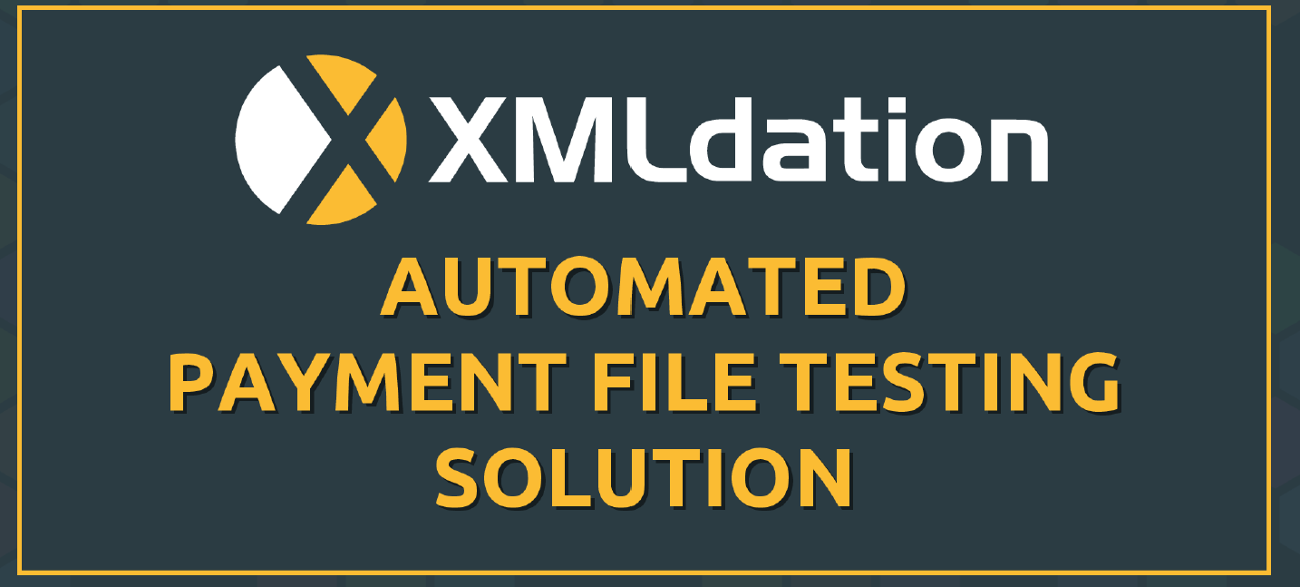Enable faster, easier implementations to improve client experience, and time to revenue
Banks – payment file testing for clients
The challenge for Banks
One of the key business processes for a bank is to onboard new clients to their payments products fast, so that the bank starts generating revenue as soon as possible.
See the infographic: Client onboarding – it shouldn’t break the bank
One of the roadblocks to fast onboarding is the technical implementation project. During this step, the client must update their own ERP or treasury software to
- produce payments files in the correct format for the bank, or call the banks APIs
- receive notifications, remittance information and account statements from the bank in the format that the bank uses
In the traditional approach to implementation, the bank first sends documentation such as a ‘file specification’ or ‘implementation guide’ to the client’s ERP managers.
The client starts development work for their systems, and later emails some example files output from their updated system to the implementation manager at the bank. The implementation manager at the bank reviews the files, by reading through the files, or perhaps by running the files through the bank payment system. Then a report on problems identified is emailed back to the client. This step can take from days to weeks in elapsed time. The client updates their system based on the report, and sends a new set of files to the bank for review. This is usually repeated many times. A ‘good’ implementation project might take 2 months, a difficult project may take up to 12 months.
Now consider the case where the bank needs to perform a mass migration to file formats such as ISO 20022 for bank corporate clients. Then this key challenge in onboarding clients is hugely magnified.
Bank clients benefit hugely if they can perform their own testing, in self-serve fashion, in their own time and according to their project schedule.
Supporting Clients with self-serve test tools
The XMLdation solution runs in cloud, and includes many suitable features for self-serve testing:
- Easy registration for bank clients
- Validator, where clients upload payment files, validate and receive excellent ‘Validation Reports’
- Simulator, where clients upload payment files, and can download simulated response files such as account statements and status reports. The client can use these to test that their system can correctly process files received from the bank
- Documentation, where clients can download bank file specifications and sample files. The solution includes a dynamic view where clients can browse ISO 20022 schema and business rule information on-screen, filter, compare across different payment types, and generate PDF and excel guides
- Easy monitoring of client activity for bank implementation managers
- Multi-language support
Banks can engage XMLdation to prepare and launch a bank-branded self-serve test environment that reflects the bank’s particular business rules and processes, integrated to their corporate treasury web portal product. This test environment can be opened to bank corporate clients and becomes an integral part of the corporate customer experience.
Value for Banks
Banks manage onboarding of new clients efficiently, and move to revenue generation faster. They deliver a more professional client experience, while at the same time reducing bank implementation team effort.
Case Study : Allied Irish bank, AIB
Reference : Payments Canada Payment File Validation
The service allows for a smooth mass migration of bank clients to new payments file formats such as ISO 20022.
Value for Bank Clients – 90% faster
Bank clients perform early stage testing according to their own timetable. Savings in elapsed time can be up to 90%.
Case: DNB Group, headquartered in Norway

Related
-

From hours to minutes: Automating Payment File Testing for a US bank
During the often-drawn-out corporate client onboarding process, the last thing a bank wants to encounter is the struggle of testing the file formats.
-

Payment File Testing services, how to build the business case for your bank
Once you've decided that Payment File Testing services solve a problem for your bank, next step is to socialise internally and do the hard work of.
-

On-Boarding: Automation of the Client Journey
A running joke among bankers is, the first thing you do with a new client is annoy them. The entire on-boarding process, from KYC (know your customer) and.





